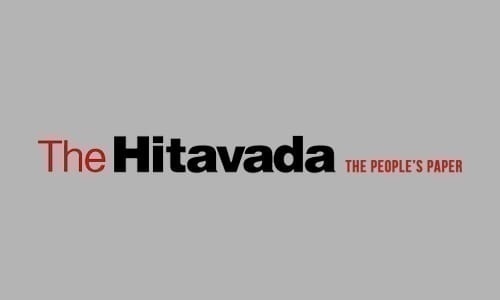Gaza: Biden’s Biggest Challenge
| Date :12-May-2024 |

By Girish Linganna
THE US President, Joe Biden, is facing political challenges as he attempts to navigate the demands of both the Israel lobby and its critics. This has led to perceptions of his weakness and ineffectiveness. With the election just six months away, Biden is struggling with a significant foreign policy issue. On Monday (6th of May), White House spokesman John Kirby expressed concerns about operations in Rafah that could potentially endanger over a million innocent people. Kirby also highlighted Biden’s belief that the hostage deal offered the best solution to prevent such risks while ensuring the release of the hostages. Several days have passed, and the Israeli Defence Forces (IDF) are still conducting an operation in the southern Gazan city of Rafah, with no visible progress towards reaching a resolution.
According to analyst Hasan Unal, this incident reflects the complex relationship between the White House and Prime Minister Benjamin Netanyahu. Unal argues that President Joe Biden faces the difficult task of trying to satisfy both pro-Palestine factions within his party and the Right-wing leadership in Israel. To delve into the strategic and humanitarian consequences of these recent developments, Professor Hasan Unal, an expert in political science and international relations at Bashkent University, participated in a discussion on Sputnik’s Fault Lines programme on Wednesday (8th May) as reported by Sputnik a Russian Media House.
Recent reports indicated that the Palestinian group had accepted a proposal facilitated by the US, Egypt, and Qatar. Unal suggests that Hamas not accepting the deal would have provided justification for Israel, particularly the Netanyahu Government, to carry out a military operation in Rafah. However, as Hamas accepted the proposal, it has put Israel in a challenging position. Unal sees this as a tactical victory for Hamas.
Unal clarified that despite Hamas’ tactical victory, it does not necessarily mean that Israel will be deterred. He emphasised that the United States holds significant leverage over Israel, possibly more than any other country in the world. While the Israeli lobby carries substantial influence in the United States, it is important to note that the United States itself wields significant power and influence over Israel.
He highlighted historical instances where US exerted pressure on Israel. For example, he mentioned the Suez Crisis of 1956, during which the US, along with the Soviet Union and international authorities, called on Israel to halt its occupation of Egyptian territory in the Sinai Desert. Additionally, Unal cited the US’s role in pushing for a compromise during the signing of the Camp David Accords in 1978 and former President Ronald Reagan’s directive for Israel to cease its bombing of Beirut in 1982. These incidents demonstrate the United States’ past efforts to rein in Israeli actions through diplomatic means. In 1991, US Secretary of State James Baker achieved a delay in granting loan guarantees to Israel.
This delay was contingent upon Israel agreeing to halt temporarily its construction of settlements or colonies in Gaza and the West Bank, which were deemed illegal. However, both Baker and former President George H W Bush encountered strong opposition from organisations like AIPAC and other pro-Israel interests due to this decision. AIPAC stands for the American Israel Public Affairs Committee. It is a prominent lobbying group in the United States that advocates for strong US-Israel relations and supports Israel’s policies and interests. According to host or the programme moderator, Jamarl Thomas, Biden’s attempts to appease Israeli Prime Minister Benjamin Netanyahu have seemingly yielded little favor for him. The US President finds himself in a challenging position.
Thomas pointed out that while distressing images of babies hanging out of buildings during the attack were circulating, President Biden delivered a speech that Thomas found deeply problematic. He criticised Biden for invoking the Holocaust in his speech, implying that referencing historical events from many years ago does not justify or excuse the ongoing genocide and tragic situations, such as babies hanging out of buildings, that were unfolding at the same time. Thomas argues that President Biden is in a difficult position, trying to please both sides but ending up losing support from both. Israel and the Israel lobby view any pressure Biden puts on them as a rejection of their interests, while some members of his own party criticise him for being too aligned with Israel.
Unal further commented on the role of multipolarity in the conflict, highlighting that other global powers are now significantly involved in the situation, which is unprecedented. He specifically noted China’s increased interest in the Middle East, particularly regarding the Israeli-Palestinian issue, which was not as prominent in the past.
Beijing recently facilitated a meeting between officials from Hamas and Fatah with the aim of fostering reconciliation between the two major Palestinian groups. Similarly, Moscow hosted a similar summit in February, emphasising the importance of resolving the longstanding Palestine-Israel conflict and garnering support from Arab nations.
Fatah is a political party and a major Palestinian nationalist movement. It was founded in 1959 and is considered one of the key factions within the Palestine Liberation Organisation (PLO). Fatah is led by the Palestinian President, currently Mahmoud Abbas.
During a period in April when Israel and Iran engaged in reciprocal attacks, it was reported that the United States urged China to leverage its influence in order to dissuade Tehran from retaliating following an attack on its consulate in Damascus. Analysts pointed out that this incident highlights the increasing influence of Moscow and Beijing, while the leader of US faces challenges in projecting global power effectively.
(IPA)



